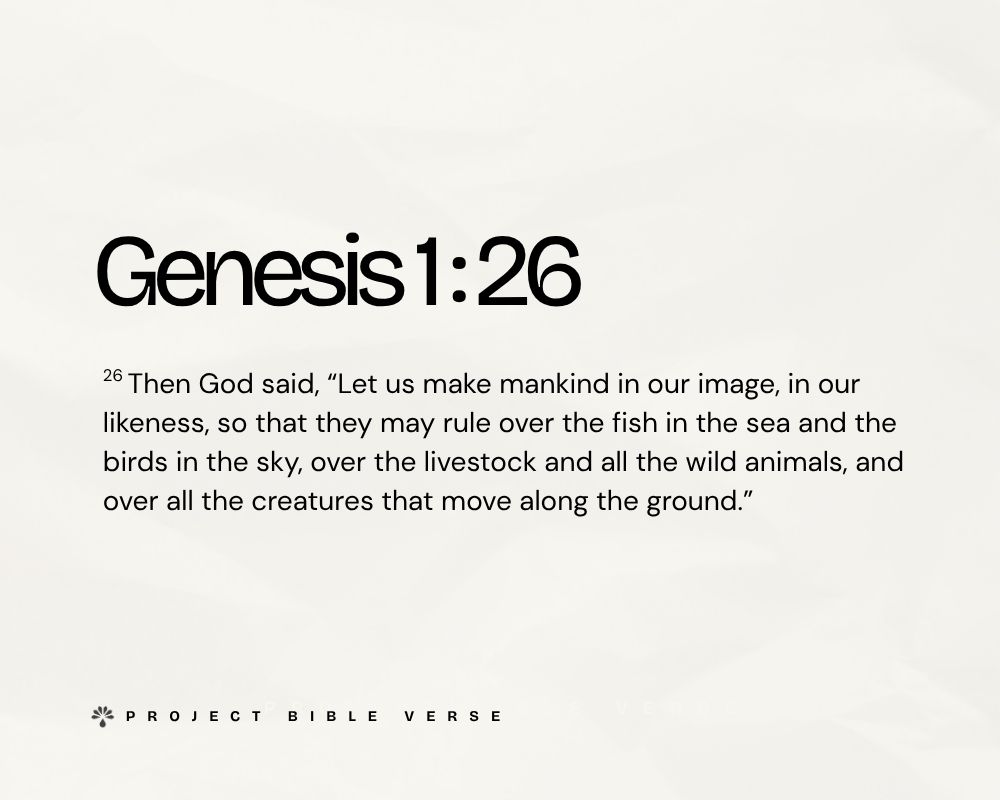
26 Then God said, “Let us make mankind in our image, in our likeness, so that they may rule over the fish in the sea and the birds in the sky, over the livestock and all the wild animals, and over all the creatures that move along the ground.”
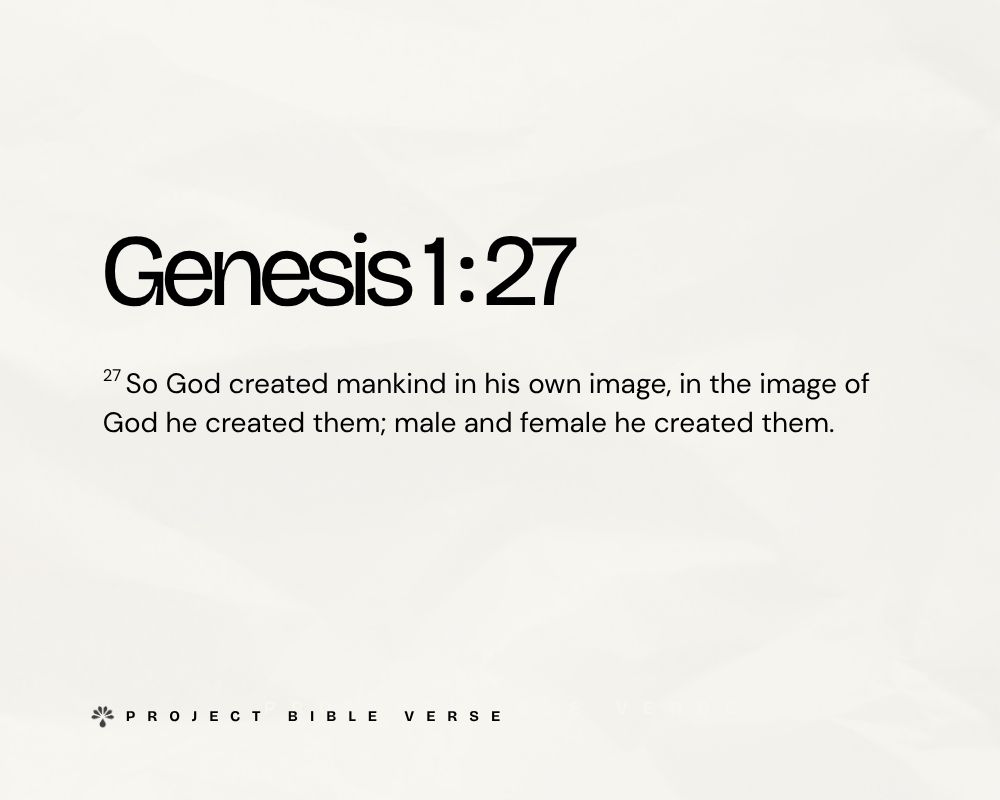
27 So God created mankind in his own image, in the image of God he created them; male and female he created them.
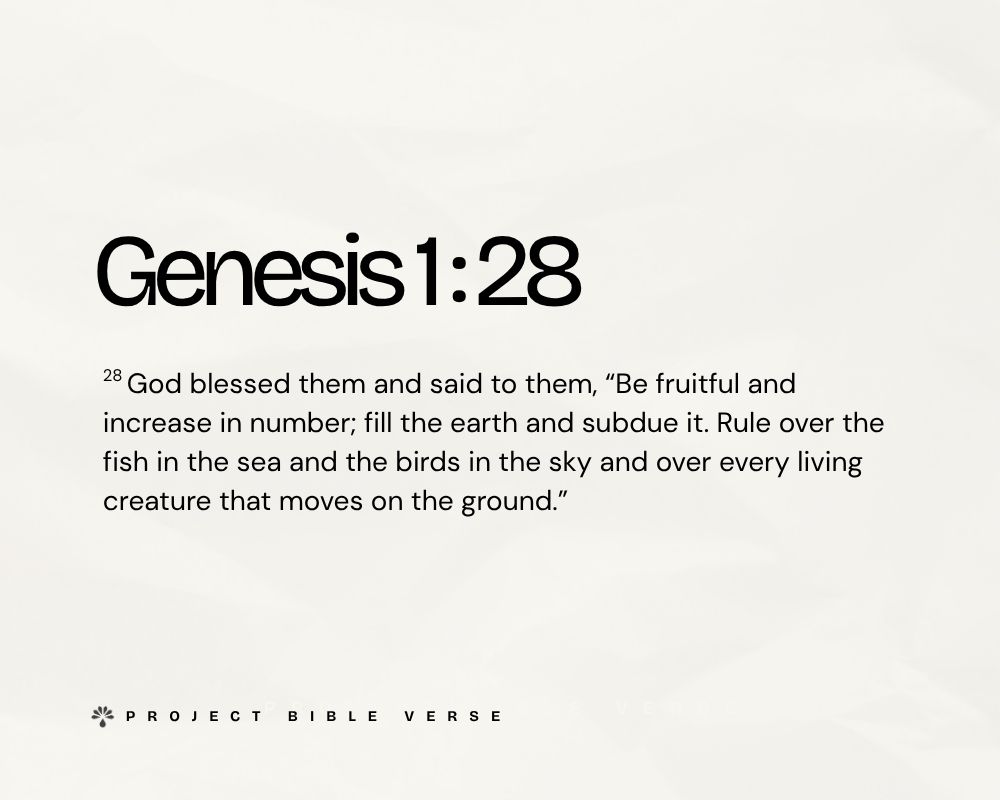
28 God blessed them and said to them, “Be fruitful and increase in number; fill the earth and subdue it. Rule over the fish in the sea and the birds in the sky and over every living creature that moves on the ground.”
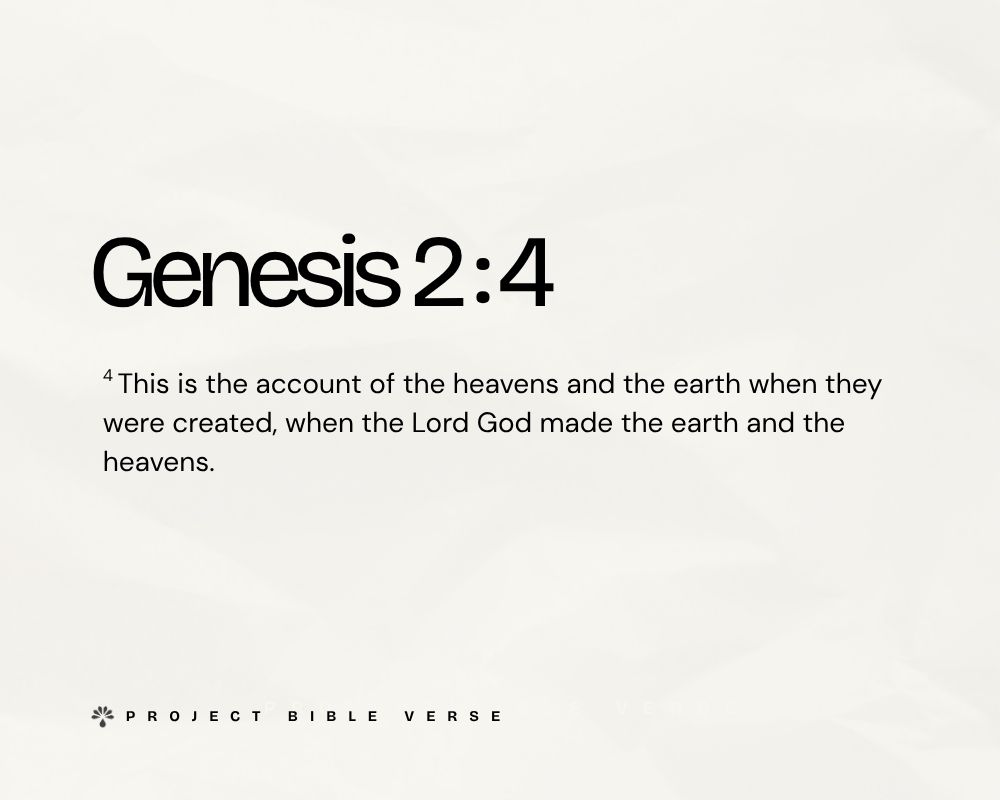
4 This is the account of the heavens and the earth when they were created, when the Lord God made the earth and the heavens.
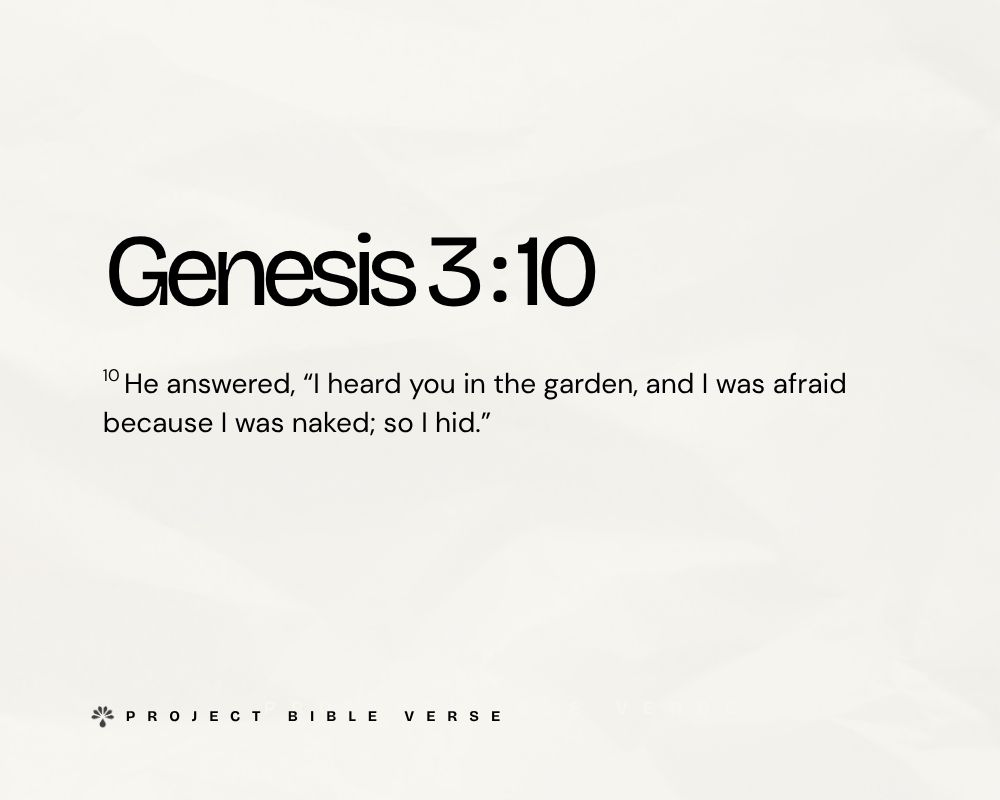
10 He answered, “I heard you in the garden, and I was afraid because I was naked; so I hid.”
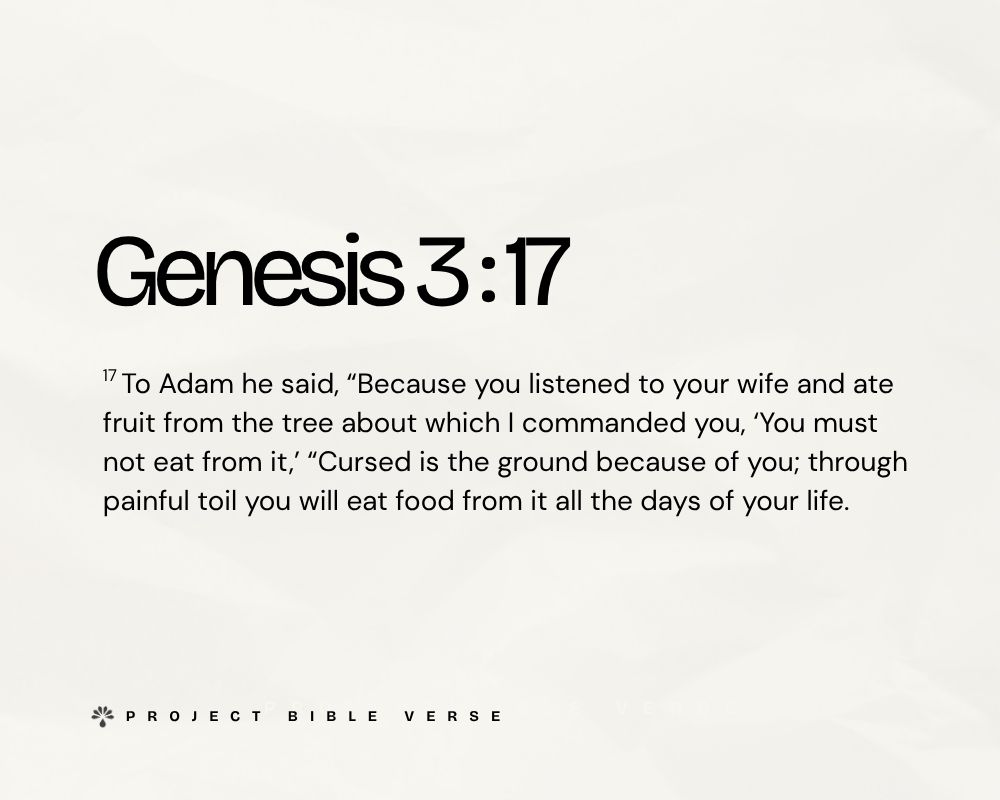
17 To Adam he said, “Because you listened to your wife and ate fruit from the tree about which I commanded you, ‘You must not eat from it,’ “Cursed is the ground because of you; through painful toil you will eat food from it all the days of your life.
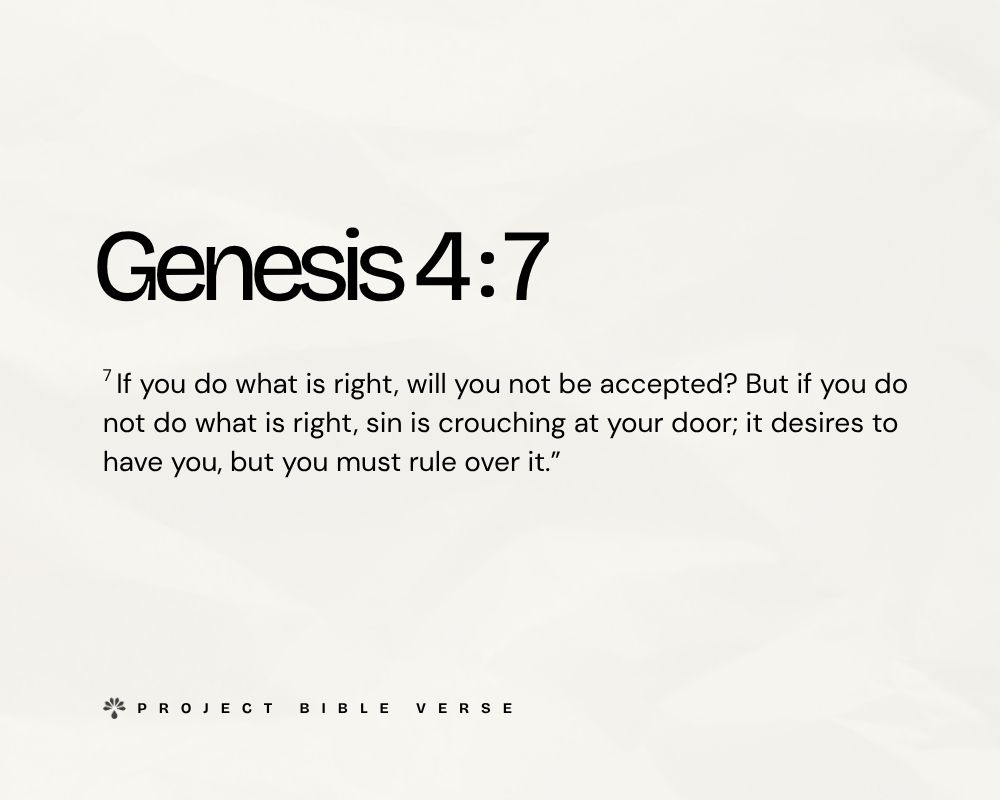
7 If you do what is right, will you not be accepted? But if you do not do what is right, sin is crouching at your door; it desires to have you, but you must rule over it.”
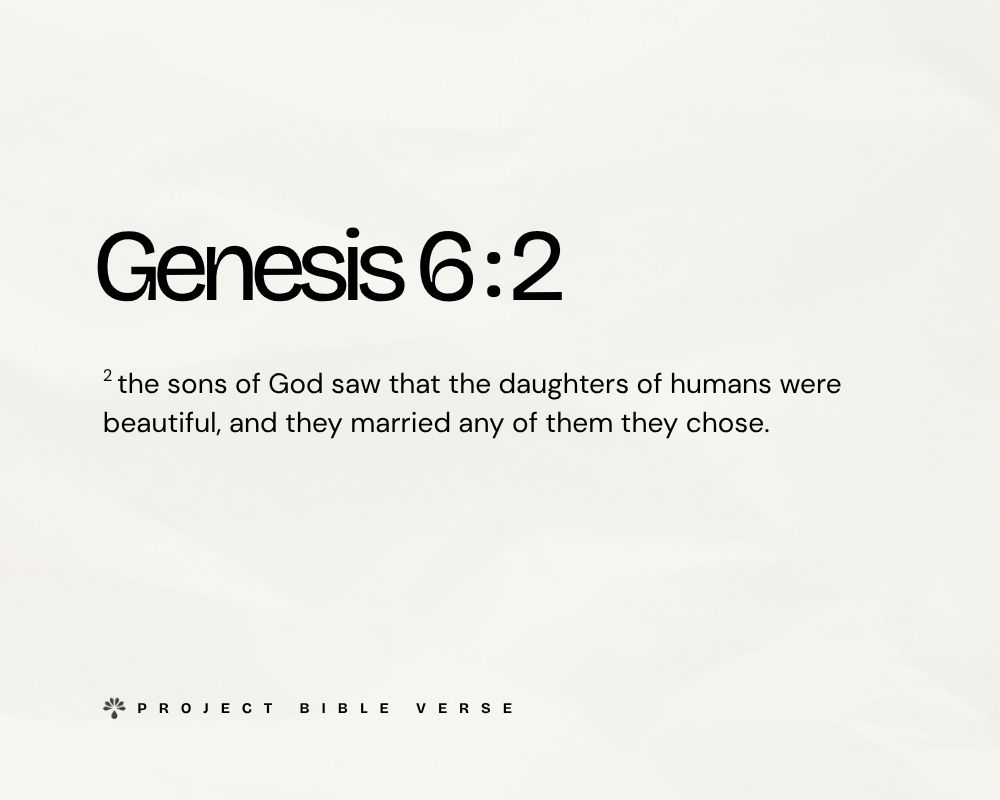
2 the sons of God saw that the daughters of humans were beautiful, and they married any of them they chose.
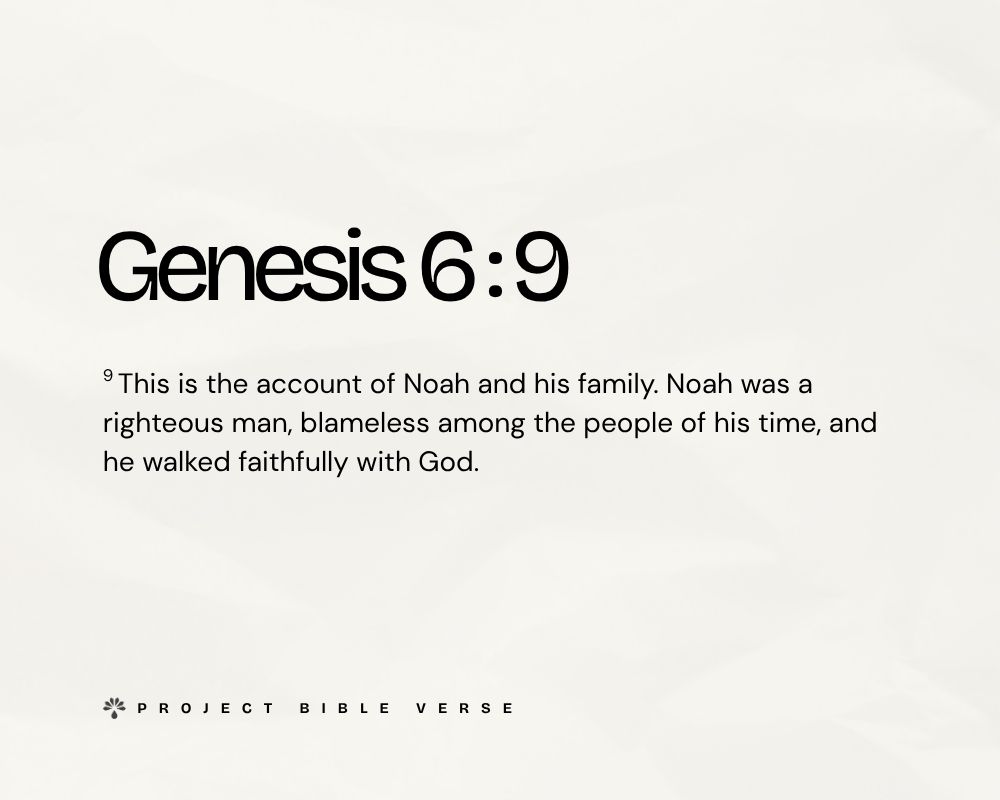
9 This is the account of Noah and his family. Noah was a righteous man, blameless among the people of his time, and he walked faithfully with God.
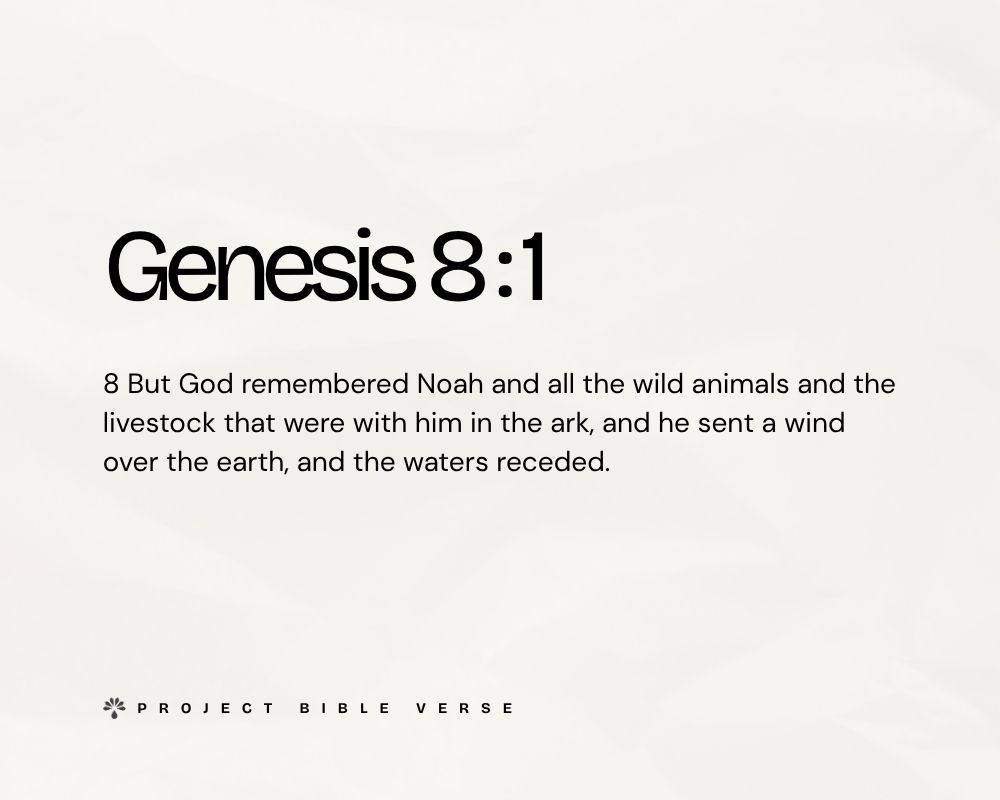
8 But God remembered Noah and all the wild animals and the livestock that were with him in the ark, and he sent a wind over the earth, and the waters receded.
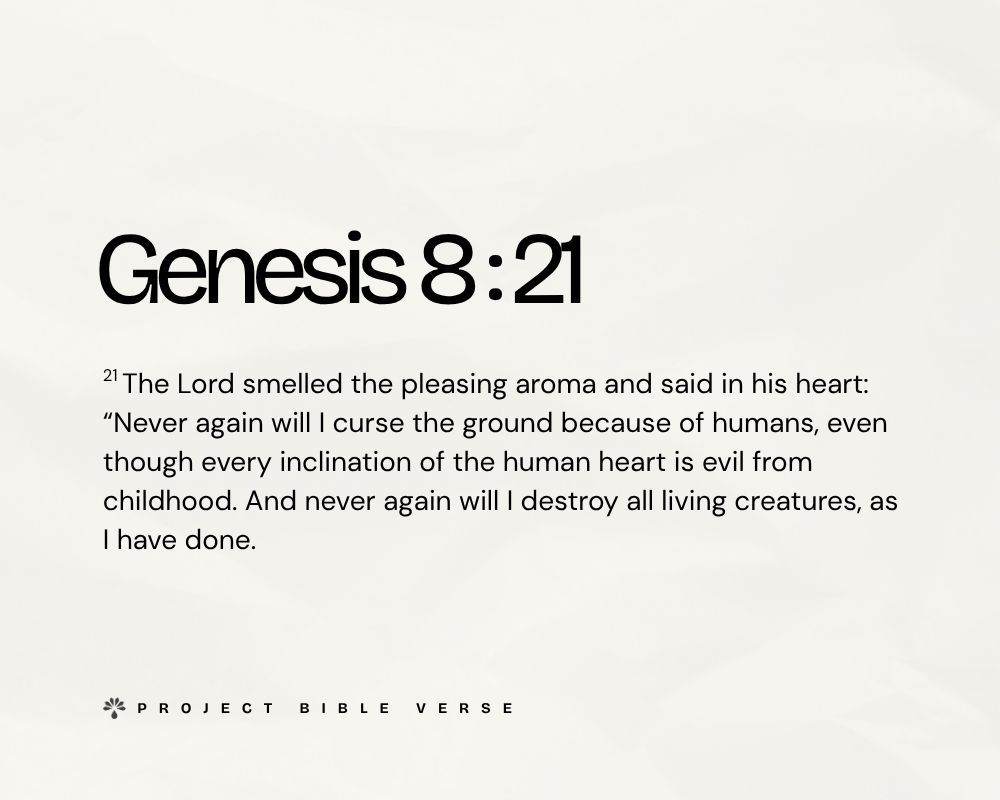
21 The Lord smelled the pleasing aroma and said in his heart: “Never again will I curse the ground because of humans, even though every inclination of the human heart is evil from childhood. And never again will I destroy all living creatures, as I have done.
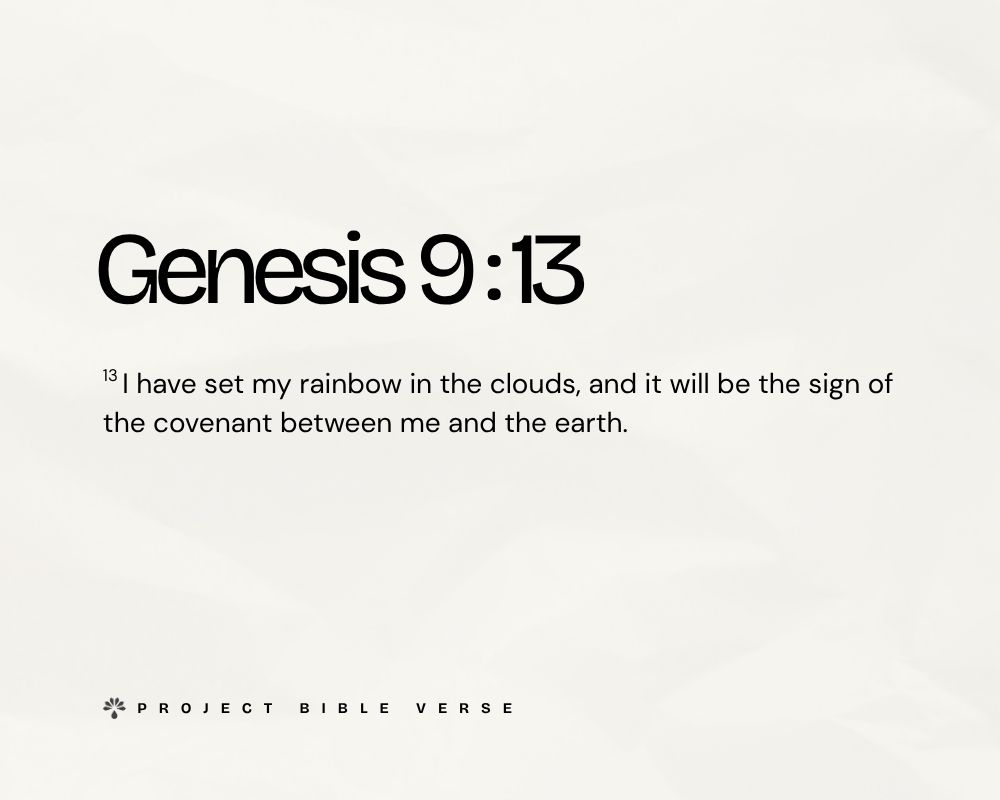
13 I have set my rainbow in the clouds, and it will be the sign of the covenant between me and the earth.